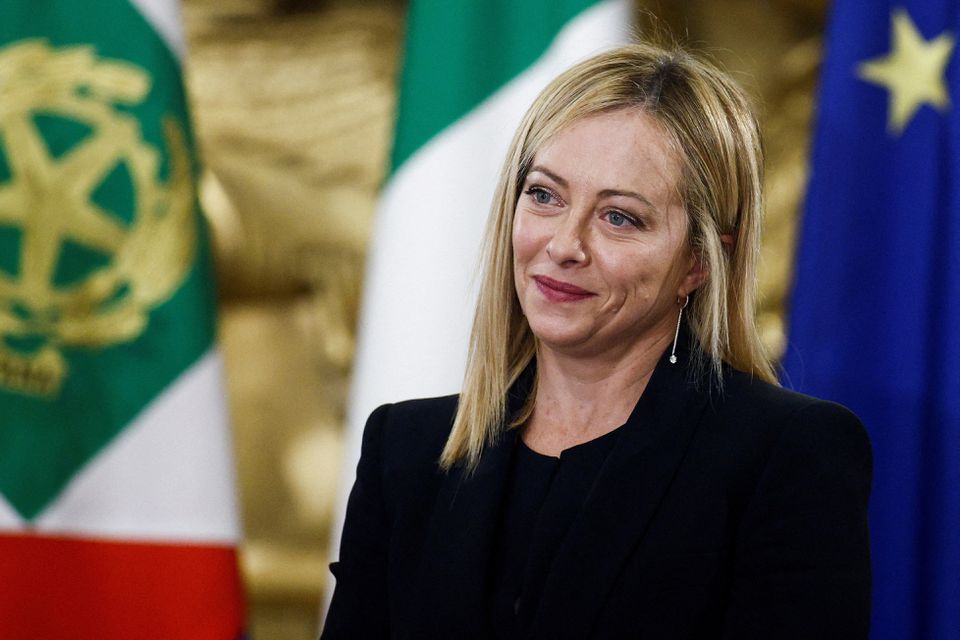Although the leader of the right-wing alliance, Giorgia Meloni made history as the country’s first female prime minister, the proportion of women in her cabinet remained below that of previous governments.

Although the leader of the right-wing alliance, Giorgia Meloni made history as the country’s first female prime minister, the proportion of women in her cabinet remained below that of previous governments.
Meloni has 24 ministers in her cabinet. Only six of these ministers are women. (25 per cent) In the previous two governments, this rate was over 30 per cent, and in 2014 it reached the highest level of 50 per cent.
The women in Meloni’s cabinet occupy some of the more junior positions, such as tourism and disabilities. Beyond Meloni herself, all the major offices of state — foreign affairs, economy and interior — went to men, as well as the justice, health and infrastructure portfolios. Women were appointed to the labor and universities briefs.
The average age of Meloni’s cabinet is 60, making it one of the oldest governments ever formed. In the new government, there are new ministries reflecting the nationalist and conservative structures of the ruling parties.
Among Meloni’s most controversial appointees is ultra-conservative Catholic Eugenia Maria Roccella as family minister. Meloni also changed the name of the ministry to family, birthrates and equal opportunities.
The right-wing alliance sees the low birth rate in Italy as one of the biggest problems and aims to “encourage locals to have more children”. There is also concern that the new government will take steps to make access to abortion more difficult.
The first step in this direction came from a senator from the Forza Italy (a centre-right political party) Senator Maurizio Gasparri proposed an amendment to the law that would legally recognise the fetus as a ‘human being’.
Concerns over women’s rights
This fuels concerns that Italian women will not benefit from Meloni’s government.
Sandra Zampa, senator from the leftist Democrats, told POLITICO: “There was no reason to think Meloni would do otherwise. I have never heard Meloni speak of women’s rights. She is the daughter of a political culture and ideology that has a negative record on equal opportunity and women’s rights and she has never made a secret of it.”
Zampa criticized the nomination of Roccella, “who is an ultra conservative Catholic and for whom abortion is not a right.” She also criticized the combination of the issues of birthrate with women’s rights, “which blocks them both.”
“This government may push back the rights of women, but I am convinced that Italian women will not allow it,” Zampa said.
Masculine title over feminine one
Meloni also chooses to refer to herself using the masculine form of her new title – sparking a debate on the issues of female empowerment and political correctness.
In Italian, names can take a masculine or feminine form and Meloni’s formal title of “Presidente del Consiglio” was preceded by the masculine article “il”, rather than the feminine “la”, in the first statement issued by her office.
Her choice of definite article was criticised by Usigrai, the main trade union at state broadcaster RAI, as well as by Laura Boldrini, a feminist centre-left lawmaker and former speaker of the lower Chamber of Deputies who was always known as “la presidente” in that role.
Source: BBC Turkish and POLITICO, Reuters

